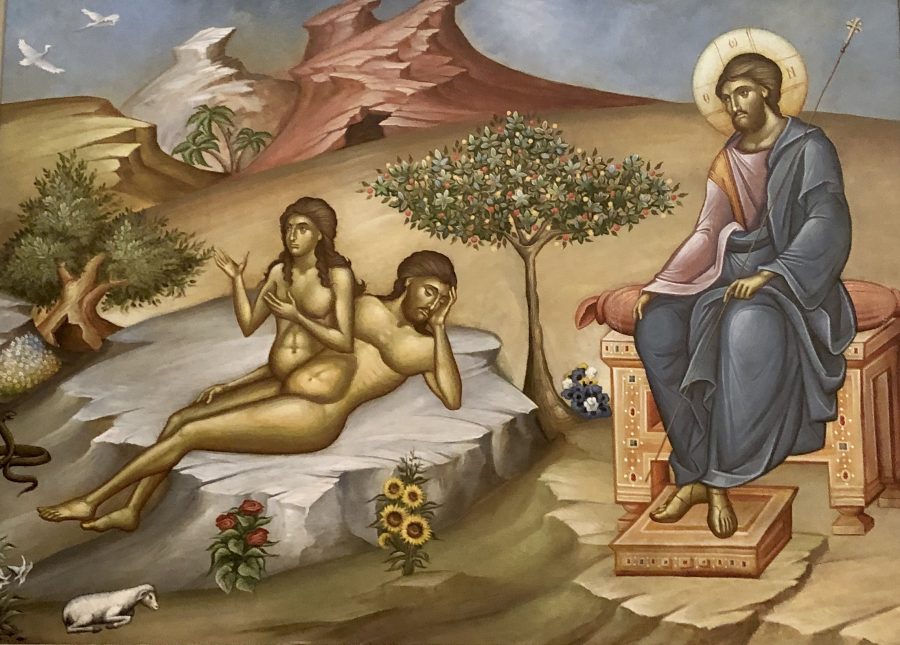Rev José Mario O Mandía
jmom.honlam.org
It was neither society nor the Church that invented marriage. It was God who planned it, from the moment he created our first parents. The Compendium (CCCC 337) reminds us: “God who is love and who created man and woman for love has called them to love. By creating man and woman he called them to an intimate communion of life and of love in marriage: ‘So that they are no longer two, but one flesh’ (Matthew 19:6). God said to them in blessing ‘Be fruitful and multiply’ (Genesis 1:28).”
Saint Pope John Paul II, in the General Audience of 9 January 1980 explained this “nuptial” (from Latin nuptialis – “marriage” or “wedding”) vocation of man.
“When God-Yahweh said, ‘It is not good that man should be alone,’ (Genesis 2:18) he affirmed that ‘alone,’ man does not completely realize this essence. He realizes it only by existing ‘with someone’ – and even more deeply and completely – by existing ‘for someone.’”
When we say that marriage is a natural institution, we mean that it springs from human nature, that it is part and parcel of human life, that it can be found in all cultures, that the principles that govern it cover not only Catholics or Christians, but everyone who calls himself human.
What is this union for? Point 338 of the CCCC explains the two-fold end of marriage: “The marital union of man and woman, which is founded and endowed with its own proper laws by the Creator, is by its very nature ordered [1] to the communion and good of the couple and [2] to the generation and education of children. According to the original divine plan this conjugal union is indissoluble, as Jesus Christ affirmed: ‘What God has joined together, let no man put asunder’ (Mark 10:9).”
MARRIAGE UPGRADED
God, however, who gave man the vocation to be holy, wanted to provide him with the means by which he can sanctify married and family life. Thus, God raised this natural covenant between man and woman to the supernatural level, to “the dignity of a sacrament” (CCC 1601).
“On the threshold of his public life Jesus performs his first sign – at his mother’s request – during a wedding feast (cf John 2:1-11). The Church attaches great importance to Jesus’ presence at the wedding at Cana. She sees in it the confirmation of the goodness of marriage and the proclamation that thenceforth marriage will be an efficacious sign of Christ’s presence” (CCC 1613)
Pope Francis, in a General Audience on 2 April 2014, explained: “When a man and woman celebrate the Sacrament of Matrimony, God as it were ‘is mirrored’ in them; he impresses in them his own features and the indelible character of his love. Marriage is the icon of God’s love for us. Indeed, God is communion too: the three Persons of the Father, the Son and the Holy Spirit live eternally in perfect unity. And this is precisely the mystery of Matrimony: God makes of the two spouses one single life. The Bible uses a powerful expression and says ‘one flesh,’ so intimate is the union between man and woman in marriage. And this is precisely the mystery of marriage: the love of God which is reflected in the couple that decides to live together. Therefore a man leaves his home, the home of his parents, and goes to live with his wife and unites himself so strongly to her that the two become – the Bible says – one flesh.”
We know that sacraments are visible signs that give grace. Through the sacrament of matrimony, husband and wife receive the grace that enables them to practice not only the human virtues but also the supernatural ones of faith, hope and charity. These virtues are needed for the mutual self-giving of husband and wife in marriage and for the family life that is born from that donation of self.
(Image courtesy of St Basil Orthodox Church, Chicago)


 Follow
Follow


